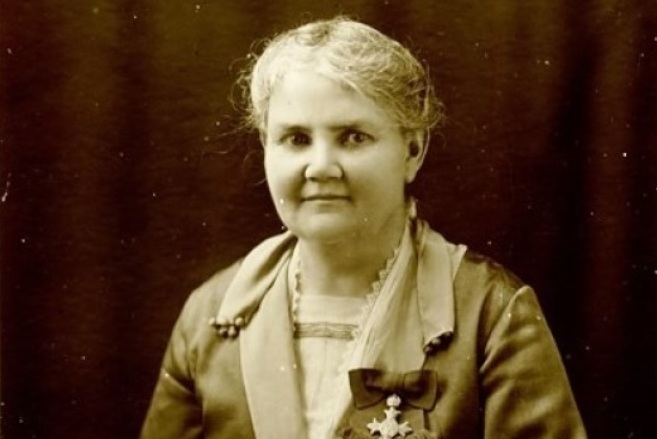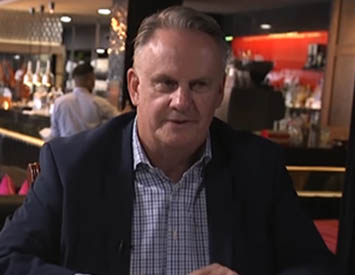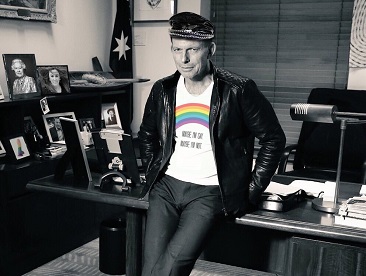Uncrumple those how-to-vote cards and wake up Antony Green, we’re going back to the polls. Dr Benjamin T. Jones analyses the election tally so far.
MALCOLM TURNBULL gave a triumphant victory speech to the Liberal faithful following the 2016 election.
This was a little strange as he had not won. Perhaps he only prepared one speech and thought what the hell?
Who can really blame him? The mainstream media – especially the Murdoch press – had been predicting an easy Coalition victory for months. The Daily Telegraph, who openly campaigned for the Coalition, even awarded the PM an imaginary trophy for timing 'his run to the line with perfection'.
No one seemed too interested in all those polls putting the majors at 50-50 and even the ALP ahead. The PM certainly didn’t seem too concerned if his relaxed campaigning schedule is any guide. Only Independent Australia seemed to think we had underestimated Bill Shorten. Thank goodness for independent media!
There are many votes yet to count but it does appear that Australian voters have delivered another hung parliament. This represents a radical change to our political norms. Before 2010, there had been a 70 year period of majority governments at every election. Now we’re looking at Australia’s second hung parliament in three elections.
As things stand, the ABC’s election website has called 70 seats to the Coalition and 67 to Labor. Either side would need to get to 76 in the 150 seat Lower House to have a workable majority as the government must provide a speaker. Eight federal seats are still in doubt.
Around 80 per cent of the national vote has been counted and clear trends have developed in these crucial eight seats. The postal votes and early votes may not necessarily follow the same trend as those who voted on 2 July. A close look at the seats in doubt, however, show an unusually strong swing in the final 20 per cent would be needed to change the current trajectory.
There will be five independents holding the balance of power should a hung parliament eventuate. Rebekha Sharkie from the Nick Xenophon Team, The Greens’ Adam Bandt, Indi MP Cathy McGowan, Tasmanian independent Andrew Wilkie and Bob Katter will be kingmakers.
Although technically in doubt, Cowan, Capricornia and Herbert, should be ALP gains. This would take the ALP to 70. The same number as the Coalition.
This leaves just five seats on razor thin margins. In Forde, the ALP is in front by 50.1 per cent at time of writing (less than 200 votes). The ALP also are leading in Hindmarsh by 50.2. The LNP are ahead in Chisholm, Gilmore, and Dunkley — by 50.1, 50.2, 50.3 respectively. (Things are changing rapidly, please click on the links to follow any of these seats.)
We are all desperately pleading with the Australian Electoral Commission to hurry up and count those votes. In the meantime, we can speculate on the likely outcomes.
Should the Coalition claim all five of these remaining seats, they will finish on 75. One short of a workable majority. Bob Katter will likely support the Liberals. Rebekha Sharkie has taken the formerly safe Liberal seat of Mayo and will probably be wooed to the conservative ranks also. So if everything goes his way, Turnbull will fall over the line.
There is something rather karmic to this scenario as Turnbull will get to experience the “Gillard treatment“. The opposition will endlessly howl that he has no mandate and he will likely be knifed by his own party, then the whole mob will be thrown out at the next election. Talk about history repeating itself!
If the Coalition finish with less than 74, however, it is hard to see them forming government. They can hardly expect help from the Greens, they can't count on Cathy McGowan, while Andrew Wilkie has promised to “do no deals” with either side.
Should fortune favour the ALP – as it certainly has so far this election – and they take all five of the remaining seats, they will also sit on a tantalising 75. Despite the bitter words, skillful negotiating should win over Bandt and/or McGowan. Working with Sharkie is not out of the realm of possibility, either.
If the majors end up with 72-73 either way, it is difficult to see either side gaining a workable majority. It is possible that Shorten could seduce three "indies" but it would be a huge ask. And would he want to put himself in that precarious position anyway? The hung parliament of 2010 was one of the most efficient and productive since Federation but the prevailing narrative in the popular press is that it was chaotic and embarrassing.
That leaves us with a final scenario. Uncrumple those how-to-vote cards and wake up Antony Green, we’re going back to the polls. This is no one’s preferred option. The election was long and boring, the electorate is tired, the pollies are tired, the babies are kissed out. But should neither side get to at least 74, that is the most likely scenario.
There’s never been a more exciting time to be a political junkie.
Dr Benjamin T. Jones is an adjunct fellow at the School of Humanities and Communication Arts at the University of Western Sydney. You can follow Dr Jones on Twitter @BenjaminTJones1 or on his blog, Thematic Musings.

This work is licensed under a Creative Commons Attribution-NonCommercial-NoDerivs 3.0 Australia License
Monthly Donation
Single Donation
Keep up! Subscribe to IA for just $5.









